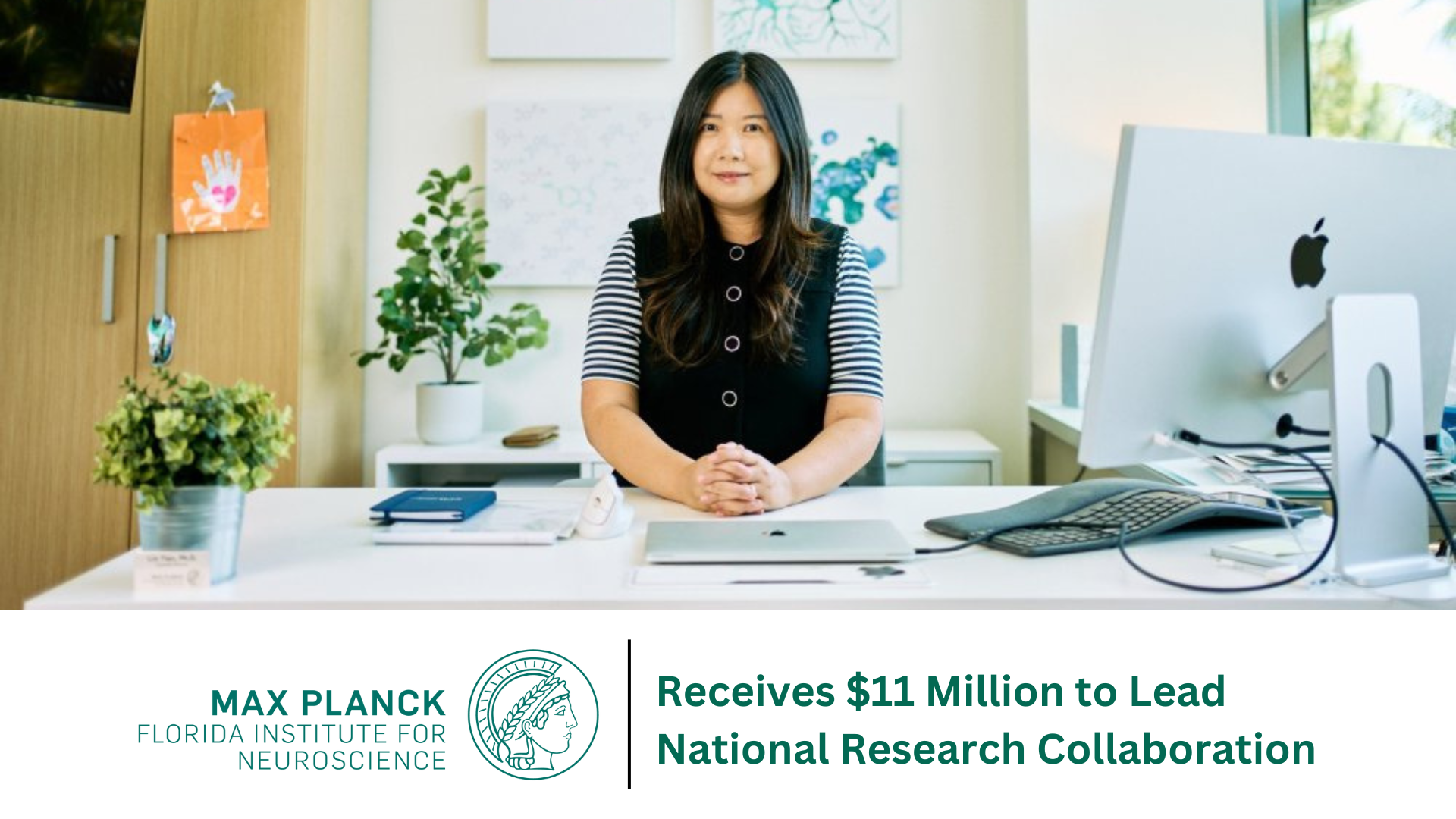 Max Planck Florida Institute for Neuroscience (MPFI) Scientific Director Dr. Lin Tian is the recipient of an exciting new five-year $11 million cooperative agreement award, along with collaborators from Allen Institute, Stanford University, University of Southern California, and University of California – Davis.
Max Planck Florida Institute for Neuroscience (MPFI) Scientific Director Dr. Lin Tian is the recipient of an exciting new five-year $11 million cooperative agreement award, along with collaborators from Allen Institute, Stanford University, University of Southern California, and University of California – Davis.
Max Planck Florida Institute for Neuroscience (MPFI), a not-for-profit research organization, is part of the world-renowned Max Planck Society, Germany’s most successful research organization with 86 institutes worldwide. Since its establishment in 1948, 31 Nobel laureates have emerged from the ranks of its scientists. As its only North American institution, MPFI provides exceptional neuroscientists with the resources and technology to answer fundamental brain development and function questions. MPFI researchers employ a curiosity-driven approach to science to develop new technologies that make groundbreaking scientific discoveries possible.
The grant, awarded through the BRAIN Initiative by the National Institute of Mental Health of the National Institutes of Health (NIH), will enable Tian to lead an interdisciplinary research team to develop, validate, and apply novel technologies to uncover how the brain’s diverse cell types and neurotransmitters or neuromodulators interact to influence neuronal activity and brain function.
This award is timely and particularly notable given recent cuts to NIH funding, which saw new funding for BRAIN Initiative awards reduced by forty percent. “We are incredibly grateful for support for this critical research, especially at a time when funding has been significantly reduced. This support underscores the immense importance and the impact of our research on the scientific community and society. With the combined efforts of our amazing teams, we are poised to make a significant difference in brain research, unlocking new ways to improve mental health and advance the treatment of neurological disorders,” said Dr. Lin Tian.
The multi-disciplinary project centers around optimizing and benchmarking much-needed tools to monitor brain electrical signals and levels of brain chemicals, such as serotonin and dopamine, in real-time. Using enhanced fluorescent biosensors, together with AI-driven algorithms and cutting-edge imaging technology, the researchers hope to revolutionize brain research. By establishing a comprehensive foundation for understanding how different cell types fire and respond to neurotransmitters and neuromodulators, the application of these biosensors will create an invaluable dataset to achieve a comprehensive computational understanding of neural network communication and behavior.
Alongside Dr. Tian, key investigators in this project include Dr. Karel Svoboda, Executive Vice President, Director of Allen Institute for Neural Dynamics; Dr. Kaspar Podgorski, a Senior Scientist leading the Optophysiology program at the Allen Institute for Neural Dynamics; and Dr. Michael Lin, an Associate Professor of Neurobiology and Bioengineering at Stanford University. Key collaborators are Dr. Cornelius Gati, an assistant professor at the University of Southern California, and Dr. Vladimir Yarov-Yarovoy, professor at UC Davis.
Together, they hope to emphasize the tremendous power of open science and collaboration, making these indispensable tools readily available to the scientific community and driving innovation in the field of neuroscience. Thanks to their wide range of applications, these innovative tools will allow scientists worldwide to make critical discoveries related to mental health and help accelerate translational and therapeutic advances.
Dr. Tian joined MPFI in October 2023, moving her lab operations from the University of California Davis, where she remains an adjunct professor in the Department of Biochemistry and Molecular Medicine at the UC Davis School of Medicine. She received her doctoral degree in Biochemistry, Molecular, and Cellular Biology from Northwestern University and completed postdoctoral training at Howard Hughes Medical Institute’s Janelia Research Campus. Here, she played a critical role in developing the calcium sensor GCaMP, making it possible to optically measure the brain’s activity during behavior. This technological achievement has transformed the field of neuroscience.
For more informationon Max Planck Florida Institute for Neuroscience, visit www.mpfi.org.



